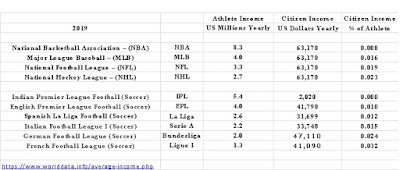This blog post is written on September 29, 2020, a few hours before the first Trump-Biden televised debate. Private and public speculation has been frenzied and frantic. Some have suggested or implied that the fate of America, even of the planet, will be determined by the presidential election—“the most important election in our history.” Democrat and Republican partisans are employing every influence trick to nudge, scare, or bludgeon you to vote their way.
I am not in that business. Rather, I have a modest suggestion that is easier said than done: think, really think, for yourself. Since neither you nor I have the time or expertise to parse every essential detail required to make the best voting decision, I limit myself to briefly discussing two related topics.
First, let’s consider an often mentioned but rarely practiced mental activity – mindfulness. Our simple working definition is mindfulness as your being aware of what is happening to you internally and externally. For instance, when you see a Biden or Trump advertisement do you reflexively nod or shake your head, smile or snarl? If your response precedes any point that the advertisement proffers, you are not being mindful. Of course, you can justify your affirming or negating reflex by indicating – correctly – that the ad is meant to get your vote independent of its truth value. You can justify that instinctive, mindless agreement or disagreement with any bit of information about Trump or Biden, regardless of its source or validity. As you may have experienced, many family or friend feuds have their origins in the affirming or negating reflex that makes any political discussion useless and/or contentious.
Why the absence of rationality? Chang, J., Kuo, C., Huang, C. et al. (2018) approach the issue indirectly by considering both reactive and proactive cognitive control mechanisms. The former refers to thought that is “top-down” in the sense that our preexisting thoughts overwhelm our interpretation of present information such that they stifle the incoming information. The latter is the opposite – bottom-up - in the sense that incoming information is processed before preexisting thoughts significantly impact it. The study in question found that high mindfulness individuals were able to evidence adaptive reactive and proactive cognitive control whereas low mindfulness ones relied excessively on proactive control.
This finding leads us to a second often-mentioned concept – confirmation bias. As you probably know, confirmation bias causes us preferentially to seek information that reinforces our current beliefs and to avoid information that contradicts them. That is, confirmation bias is exclusively top-down/proactive.
Mindfulness, then, is most often an advantage in virtually all mentation. Do you tend toward mindfulness? Psychologists would like to be able to differentiate those who do from those who do not. Toward that end, Altizer, Ferrell, and Natale (2020) investigated mindfulness and personality types. They concluded that mindfulness was more prominent in “well-adjusted” persons, since they are inclined to cope adequately with stress. Similarly, mindfulness tended to be higher in ambitious persons, but only those whose ambition included a high level of positive human relationships. The Altizer group proposed that mindfulness was less present in overly cautious, defensive, and excitable persons.
What does all this say regarding the Biden-Trump election? The obvious conclusions are that we would do well to be as mindfully open-minded as possible, and by refraining insofar as possible from confirmation bias. You can facilitate those processes by:
1. Taking a deep, stress-reducing breath when confronted with election ads and other influencers, animate or inanimate.
2. Considering how your election attitudes are affecting your personal well-being and your interpersonal relationships.
3. And by trying to reduce your defensiveness.
A final point about which I never have seen research, but that deserves it: selective mindfulness. By that I mean being attentive and rational about one feature of reality and not about another closely related feature. Applying the idea to the election, that would concern being mindful about a democrat or republican, but not about the opposite-party candidate. Please think about whether selective mindlessness applies to you, and about how it could influence how you decide to vote.
References
Altizer, C. C., Ferrell, B. T., & Natale, A. N. (2020). Mindfulness and personality: More natural for some than others and how it matters. Consulting Psychology Journal: Practice and Research. Advance online publication. http://dx.doi.org/10.1037/cpb0000189
